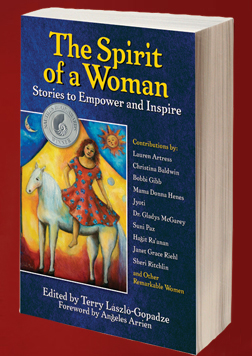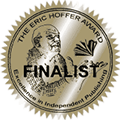by Caryn Mirriam-Goldberg, Ph.D.
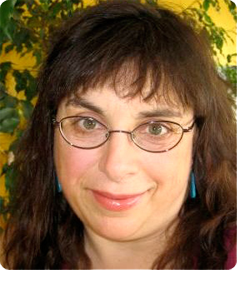 “I wait for you your whole life, not something you made up, but air against air, light against light draped over your shoulders like a sweater of no weight.”
“I wait for you your whole life, not something you made up, but air against air, light against light draped over your shoulders like a sweater of no weight.”
-Imaginary Friend
When I was a child, I didn’t have any human friends. It wasn’t that I didn’t want friends; I just didn’t understand how to get them. Hard-wired for interior sound from the get-go and growing up in a tumultuous home, I found imaginary friends for each day of the week. Monday was an older sister, reserved and confident. Tuesday had straight blond hair and a penance for dolls. Wednesday and I were thick as thieves, and she understood me best. Thursday was a standoffish brother, Friday a party animal, Saturday a patient and exhausted mother, and Sunday, a distracted father.
When I grew older, drawing took the place of imaginary friends. The images I made on paper kept me company, told me someone else was there – a tree coming into form, a snake swallowing its long tail, a face of a woman I didn’t know. Eventually, images weren’t enough.
I started writing like a maniac when I was fourteen, sitting on cements steps outside of what was called a “garden apartment” on a hot July afternoon in New Jersey. My best friend and her mother, who was dating my still-married father, were due any minute. At home, in the middle of their divorce, my father barricaded himself in the master bedroom, while my mother slept in a guest room. Battles encompassed raiding bank accounts, poisoning plants, and putting the kids, especially the oldest – me, on the front lines.
In that air, heavy with humidity, just-cut grass and a dying rose bush, I wrote a poem, not surprisingly, about the cruelty of people and hopelessness of life. Something must have shifted in me during the writing, however, because I returned to the page the next day, and the next. Writing became my language of survival, how I spoke to myself in a voice I didn’t hear anywhere else, edged with compassion and hope. I asked if God was there, and I heard back “yes” in each line. I asked what to do, what I felt under all my numbness, why Mike liked Denise more than me, and when my father would stop yelling and my mother crying?
The night my father dropped me off at our suburban house, threatening to kill himself, all I had was my journal. The afternoon my mother told me I was a bad daughter for siding with my father, I wrote. When our relatives took sides, I turned to poetry. It wasn’t that writing gave me answers so much as it gave me a place to ask questions, and to feel, simply in the asking, held.
During the long year of the divorce, I told myself repeatedly that what was happening would make a great novel. Because of writing, I had close-up and panoramic vision at once. “Remember this scene,” I told myself during the courtroom fights and other moments of high drama, which were plentiful.
In the year after my mother and siblings moved out, my father’s girlfriend broke up with him and my best friend with me, I found myself thrust into the role of a daughter-wife – now responsible for cooking, cleaning, laundry and entertaining my younger siblings on the one night a week we saw them. Many steaks burned, and dress shirts mildewed in the washer because I was more concerned with getting a line in a poem right than pleasing my un-pleasable father who transferred his screaming and throwing of dishes from my mother to me. Depressed, exhausted and more alone than I imagined anyone could be, I survived because I wrote. If life was as interesting and satisfying as writing, I might as well stay around to see what would happen, I told myself.
Writing was how I came to sit face and face with my soul, and ask, “What’s up?” It was my spiritual companion, a sidekick who tapped me on the shoulder, rolled her eyes and said, “Yeah, this does suck, but think of what material this is for our writing,” or held me as I fell asleep at night, an invisible friend who showed me who I really was: a writer.
Like many people bound to create something somehow for a living, figuring out what to do with my writing led me on a path of my own making. After a disastrous experience in journalism school, five years exhausting myself through political organizing, and picking up jobs along the way from waitressing the graveyard shift at an I.H.O.P. to demonstrating energy conversation techniques for homeowners, I made my way back to school where I dove into poetry. A master’s in creative writing and Ph.D. in English, plus three children later, I found my calling to write had a sister-calling: helping others find healing and strength through the written word. I taught at various universities, and since 1996, in Goddard College’s Individualized MA program, where I founded a master’s degree in Transformative Language Arts, focused on using writing, storytelling and performance for individuals and community transformation. I also began leading community workshops, where I came face-to-face with the sheer and vulnerable power of writing in our own best voice.
From the first workshop I offered in my hometown of Lawrence, Kansas — “Write from Your Life” — in 1992 through the present, I continually find how people want and need to write toward softening the hard skin of their wounds, opening the locked gates to where and when they knew freedom so they could come home to themselves. I’ve learned the importance of opening the doors and windows of our lives to write of our yearnings and fears, and to use writing to revise our lives from adults in transition, teens in crisis, people diagnosed with mental illness, low-income single moms, people in recovery from addiction, children so young we sang and clapped out the poems we created aloud, and elders sharing the essential stories of their lives. No matter where I go, I find writing our deepest, truest stories (while putting concerns of grammar, spelling or making sense on the shelf) is the great equalizer, cutting through class, education, race, diagnosis and age.
Such writing can make a group of strangers into a community, and a small room in a hospital basement or community center into a sanctuary, as I found when I began leading workshops for people with cancer and chronic illness. Propelled toward this work by my own experience of breast cancer, I began offering workshops to patients, doctors, nurses, and caregivers.
In each workshop, I see miracles: how simply witnessing each other makes a welcome space for spirit to rise up. In each page or screen, blank before my hands start moving, I also witness the expansive beauty of life’s possibilities. Each time I begin a new poem, essay or novel, the first thing I think is, “I don’t know how to do this.” I feel the same way with the first downward facing dog of the day. Yet I love that feeling, that newness, that sense of being so alive that all my cells are thrilled, scared, happy and ready to witness what the page says.
As a child, I asked each day of the week, then the blank page, to be my friend and show me how to engage with the life of this world. I’m still asking, living the words each time the page answers, “Yes, I’m here. Always.”
Biography
Caryn Mirriam-Goldberg, Ph.D., is the 2009-2011 Poet Laureate of Kansas; founder of Transformative Language Arts at Goddard College, where she teaches; a beloved teacher and workshop facilitator; and the author of ten books. Her publications include four collections of poetry, Landed, Animals in the House, Reading the Body and Lot’s Wife; a writing guide, Write Where You Are; a memoir on cancer, community and coming home to the body, The Sky Begins At Your Feet; and she served as editor of several anthologies, and as co-editor of The Power of Words: A Transformative Language Arts Anthology. The poem she quoted from Julie Cowdin can be found in My Tree Called Life: Writing and Living Through Serious Illness, which Mirriam-Goldberg edited. She also has been deeply active in the bioregional movement since the early 1980s. In 2003, she founded the Power of Words conference at Goddard College, which brings together writers, storytellers, performers, musicians, community leaders, healers, health professionals and activists to develop the field of TLA. She also worked with others to found the TLA Network, a not-for-profit dedicated to right livelihood and networking to grow TLA as a field, profession and calling.www.TLANetwork.org, www.Goddard.edu, www.CarynMirriamGoldberg.com

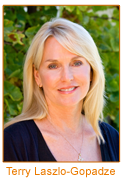
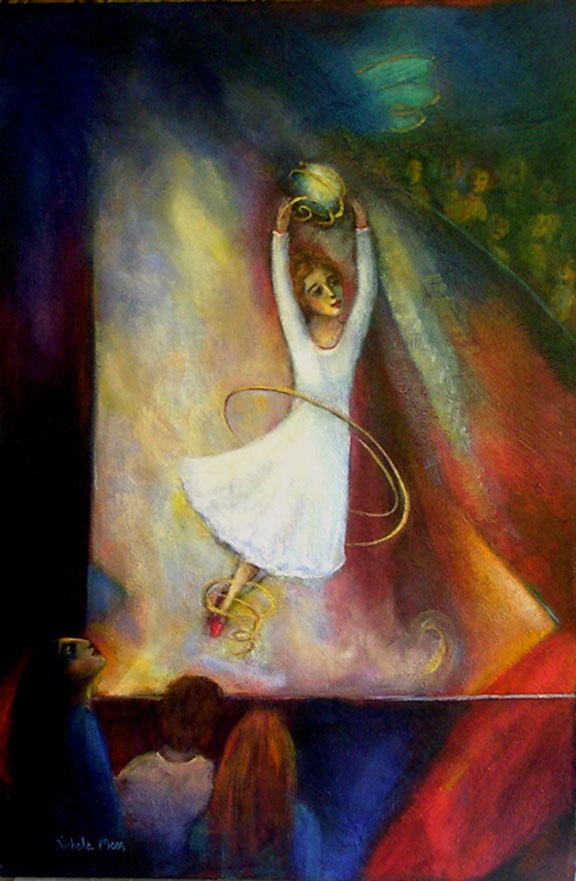

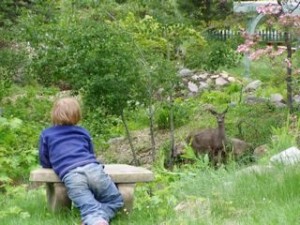
![Reblog this post [with Zemanta]](http://img.zemanta.com/reblog_e.png?x-id=effa90df-0f81-4182-9f2b-47dc590746ab)
